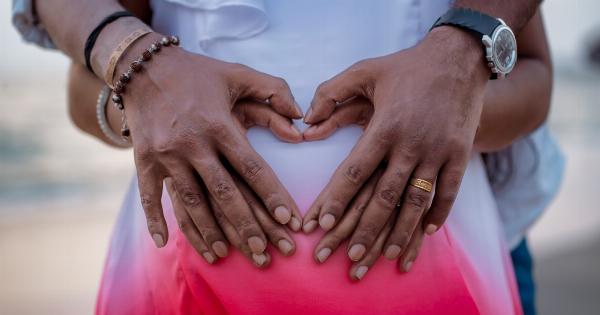Anemia is a common blood disorder that affects millions of people worldwide. It occurs when your blood doesn’t have enough red blood cells or hemoglobin, both of which are responsible for carrying oxygen throughout your body.
There are several types of anemia, but the most common type is iron-deficiency anemia. If left untreated, anemia can lead to a number of serious complications, such as heart problems, pregnancy complications, and even death. Here are some of the warning signs of anemia:.
1. Fatigue and Weakness
One of the most common symptoms of anemia is fatigue and weakness. You may feel tired and sluggish all the time, even when you’re not doing anything strenuous.
This happens because your body is not getting enough oxygen, which is necessary for energy production. If you feel like you need to take a nap or rest more often than usual, it might be a sign of anemia.
2. Pale Skin
Anemia can cause your skin to appear pale. This is because your body is not producing enough red blood cells, which are responsible for giving your skin its healthy color.
You might notice that your skin looks pale, especially on your face, lips, and hands. In severe cases, the whites of your eyes may even appear yellow.
3. Shortness of Breath
If you are experiencing shortness of breath or difficulty breathing, it could be a sign of anemia. This happens because your body is not getting enough oxygen, which makes it difficult for you to breathe.
You might notice that you get out of breath quickly when you’re exercising or doing any physical activity.
4. Headaches and Dizziness
Anemia can cause headaches and dizziness. This happens because your brain is not getting enough oxygen, which can lead to headaches and a feeling of lightheadedness or dizziness.
You might feel like you’re going to faint or pass out, especially when you stand up quickly.
5. Cold Hands and Feet
Anemia can cause your hands and feet to feel cold. This happens because your body is not producing enough red blood cells, which are responsible for carrying oxygen to your hands and feet.
You might notice that your hands and feet feel cold and numb, even in warm weather.
6. Irregular Heartbeat
If you are experiencing an irregular heartbeat or heart palpitations, it could be a sign of anemia. This happens because your heart is working harder to pump blood throughout your body, which can lead to an irregular heartbeat or palpitations.
You might feel like your heart is racing or pounding in your chest.
7. Restless Legs Syndrome
Restless legs syndrome (RLS) is a condition that can cause an uncomfortable sensation in your legs, which can make it difficult to sleep at night. It has also been linked to anemia.
If you are experiencing restless legs syndrome, it could be a sign that you are deficient in iron.
8. Brittle Nails
Anemia can cause your nails to become brittle and weak. This happens because your body is not getting enough oxygen and nutrients, which can lead to dry, brittle nails that break easily. You might also notice that your hair is thinning or falling out.
9. Cravings for Non-Food Items
Anemia can cause unusual cravings for non-food items, such as ice, dirt, or paper. This is known as pica and is a common symptom of iron-deficiency anemia.
If you find yourself craving unusual things, it may be a sign that you need to get your iron levels checked.
10. Chest Pain
If you are experiencing chest pain or discomfort, it could be a sign of anemia. This happens because your heart is working harder to pump blood throughout your body, which can lead to chest pain or discomfort.
You might also feel like you’re having trouble breathing or that your chest feels tight.
If you are experiencing any of these warning signs, it is important to see your doctor as soon as possible. Anemia can be treated with iron supplements, changes in diet, or other treatments, depending on the underlying cause.
The earlier it is detected, the easier it is to treat.






























